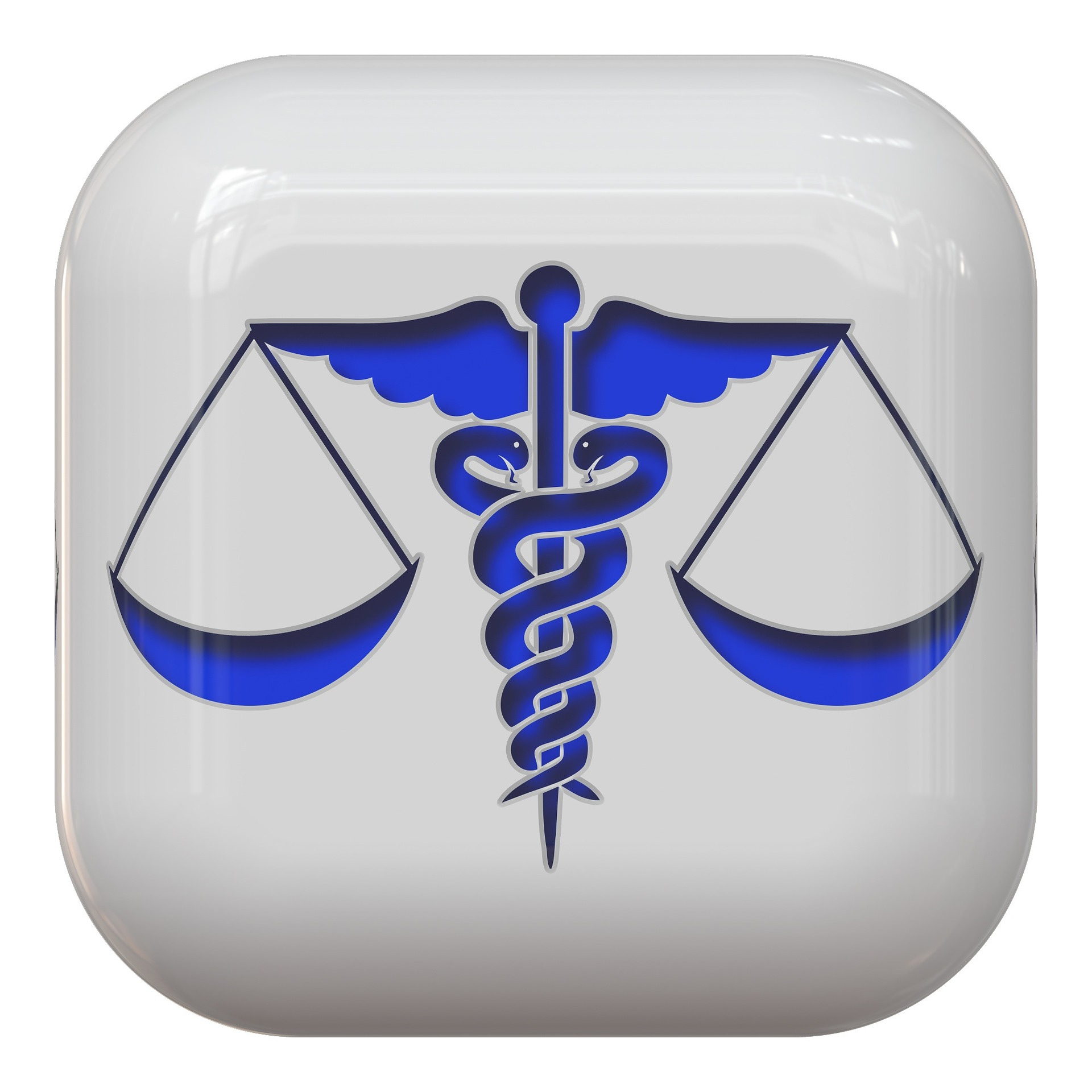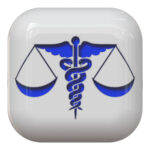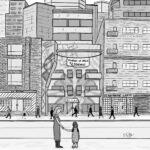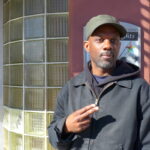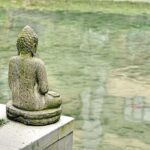I staggered through the automatic doors like a drunk. One eye open. Grimacing in pain. But through the pain, if I’m honest, I was still conscious of how I looked—or, more accurately, what I resembled.
I glimpsed the reception desk of the clinic and began tidying my ordeal into a single sentence. Easy enough. In fact, “My eye hurts!” would do. But before I could open my mouth, another concisely expressed idea sounded from behind me.
“Stop! Sir, you have to stop.”
“What?”
I turned to use my one good eye.
“You’ll need to empty your pockets and go through the metal detector,” said a security guard by the doors. She had begun to lurch toward me.
“What?”
I perceived a bucket on a table where I was to deposit my wallet and keys. I understood what was happening and obeyed. But I also decided to grumble something. I was suddenly feeling righteous and set upon, a Kafkaesque victim-hero. An American in the healthcare system.
“This country,” I muttered. “This country.”
The security guard shrugged.
“People get shot here,” she said.
After being escorted through the metal detector, I was allowed to approach the desk. The pain from my eye was white-hot, and I rapped my knuckles softly against the counter, awaiting the verdict on my insurance. The workers at reception spoke in a DMV deadpan.
“We don’t take your insurance,” one of them said.
“That’s fine. I don’t care,” I said, scratching the counter.
“Okay,” she said. “We’ll need $75 before you can go in.”
“Fine, fine,” I said. I realized then that I couldn’t open my eye anymore. I was worried, in the perfect position to be milked. My status had been elevated from potential threat to walking credit card. I would’ve given them more if they’d asked.
I took a seat in a plastic blue chair. The lobby was empty, I think. I was closing my eyes. Having one eye open would cause the other eye to twitch and the pain to fire up. It was similar to accidentally putting hydrogen peroxide solution in a contact, except this pain wouldn’t relent. After ten minutes or so, I was called back into the clinic, where they tried to do a vision test, but I couldn’t open my eye at all at this point, and so they sat me down in a patient room where I waited a little longer for the nurse.
“Mr. French?” said the arriving nurse.
“Yes, hello.”
“Hi there. I wanted to let you know I have a student with me. Is that okay?”
“Yes, that’s fine,” I said.
The nurse applied some numbing drops so she could examine my eye. I had a pretty nasty corneal abrasion apparently. How it happened, I have no idea. When I woke up, it had felt like there was something scraping around in the bottom and sides of my eyeball, and the pain got worse and worse the more I tried to rub and rinse out the debris. Eventually, I had no choice but to go to urgent care, and Denver Health was the closest one.
“Are you in a lot of pain?” she asked.
“Not as much right now. But before, yeah,” I said. “To be honest, it was also kind of a pain to have to go through that metal detector before getting in here.”
“That’s for our protection,” she said mechanically.
Our protection. It was a divisive sentiment; it was us vs. them. I began weighing the scales of their protection and my dignity as the nurse invited her student to take a look at my eye.
“Oh, wow!” the student said.
“You see the abrasion?” asked the nurse.
“Wow, that’s crazy. That is so crazy!”
I started to laugh. I pulled my head and eyeball away from the gawking young student.
“What is it?” said the nurse.
“This country,” I said. “This country…”
“What do you mean by that?”
I didn’t elaborate. I didn’t want to antagonize the nurse any further. Besides, it was the way things were. Not my first rodeo in an urgent care. I was an object of work, a problem to solve—sick livestock with a billfold—but I was also a liability. Assaults happened all the time at hospitals. “People get shot here,” the security guard had said, and she wasn’t wrong. Throughout healthcare, rates of physical attacks on doctors and nurses have been increasing, especially as workers deal with rising numbers of drug addicts and the mentally unwell. I imagine Denver Health receives its fair share. And then there’s the discontent toward healthcare in general—exemplified by the apotheosis of Luigi Mangione. All this interference was now operating in the rooms where physician and patient met. And here I was, indignant about the lack of bedside manner.
The nurse turned toward her computer and arranged my prescription, moving with more haste. I had to tease out the necessary details from her. How many drops, how long it would take to heal, etc. She answered coldly and then sent me on my way.
At the front desk, I tried to find out how much I was going to owe, but they wouldn’t give me a number.
“You’ll get the bill in the mail. It’s usually like $300,” they said. I didn’t believe them. Not my first rodeo.
“Okay,” I said.
I walked out of the clinic and into the sunlight. The numbing drops the nurse had given me were wearing off, and the pain was getting bad again. I called an Uber to take me to the pharmacy, but they would only park in a designated spot on the far side of the hospital. I tried to walk there, but when my injured eye twitched and caught the light—
“Shit!”
I bent down in the middle of the sidewalk, clapping my hand over my eye. I thought about how I looked again, and about all the times I’d passed other people on the sidewalk hobbled by some anonymous pain and muttering their public agonies alone—the things I would think or not think about them. Yes, I was one of them now.
I didn’t have any friends nearby who owned a car. I was going to have to put enough distance between myself and the hospital for an Uber to come pick me up. Across the street, a police car was pulling into one of the clinics, and as the officer exited I flagged him down.
“Hey, officer. Officer!” I yelled.
He turned, a little apprehensive as I approached.
“Hey, sorry, but I just got out of the urgent care there. My eye’s hurt, and I’m in a lot of pain. The Uber won’t come pick me up here. I know this is weird, but could you, like, just drive me a few blocks away so that I can call an Uber to take me to the pharmacy?”
I got it all out in one wind. For a moment, the officer looked me over. Then he shrugged.
“Sure.”
So Officer O’Connell patted me down and let me in the back of his squad car.
“I’m just gonna take you to the police station,” he said. “Lots of Ubers go there. A lot of people getting out of jail. Their lawyers too.”
“Take me to jail, officer,” I said, and he chuckled.
“Yeah, eye shit can be scary,” he said.
O’Connell related a few stories about some of the things he’d seen. Ocular puncture wounds from knife stabbings. The stuff of nightmares, part of the job. He rattled off the horrors like he was remembering what he’d had for breakfast. Just like healthcare workers, cops develop their own callouses. The cliché is that most of the people they’re meeting are having the worst days of their lives. As a defense mechanism, some of them adopt this stoicism that, if they’re not careful, can slip into a dehumanizing attitude—or even a hateful one, depending on their experiences and biases. When I worked as a teacher, I had a similar problem. The more emotionally involved I was in the work, the more exhausted I became. I would come home and feel sapped in a completely new way—like my soul itself was worn out. It doesn’t take long for teachers to begin distancing themselves emotionally from their students, or to stop trying altogether—hence the stereotype of the checked out, hard-drinking public educator. Of course, similar stereotypes obtain for nurses and cops—any hard job with high burnout. Fortunately, some people are made of sterner stuff, or they figure out a way to endure. Officer O’Connell seemed personable enough, and I thanked him for taking the time to give me a ride.
By the time I got to the Walgreens on Broadway, I was practically blind. All I wanted to do was lie down. A good Samaritan helped me navigate my way to the prescription counter, where I learned that the nurse had ordered a prescription for ear drops instead of eye drops. They’d have to call the urgent care to get a new one. So I took a seat, kept my eyes shut, and waited to pay. After a week, my eye would heal, and I’d get the next bill in the mail.
Paul M. French is the founder and editor of Denverse Magazine.

